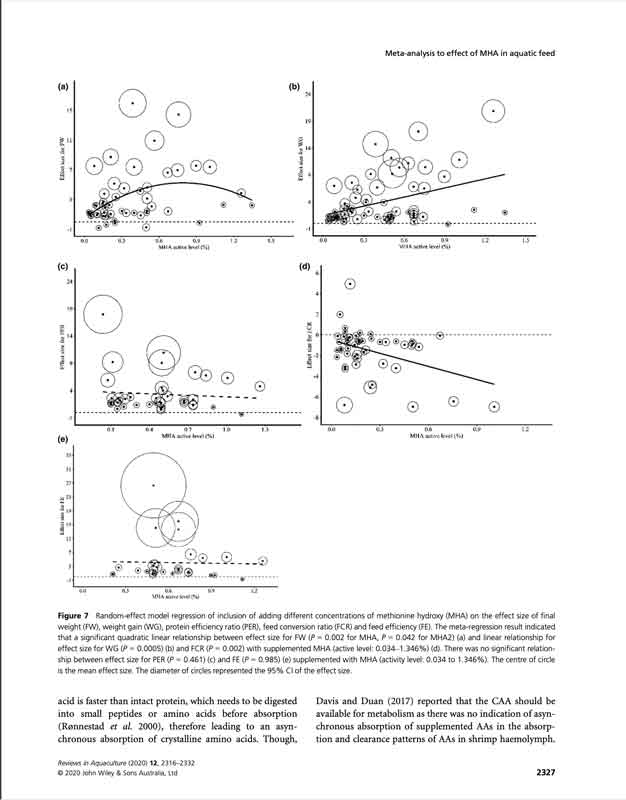Keyword: Feed utilization

Guo, J., Y. Bao, R. Davis, A. Abebe, A. E. Wilson, and D. A. Davis. 2020. Application of meta-analysis toward understanding the effect of adding a methionine hydroxy analog in the diet on growth performance and feed utilization of fish and shrimp. Reviews in Aquaculture 12(4):2316-2332.
Abstract
Methionine hydroxy analogue (MHA) has been widely used and shows positive effects on growth in poultry, swine, ruminant and aquatic animals. Nevertheless, the utilization efficiency of methionine hydroxy analogue remains controversial considering the wide variation in effects across studies, feeding parameters and environmental culture conditions. Meta-analysis can quantify the effect of adding MHA on animal performance. Here, we analysed the effect of MHA-supplemented diets on the final weight (FW), per cent weight gain (WG), protein efficiency ratio (PER), feed conversion ratio (FCR) and feed efficiency (FE) in common, diverse aquaculture taxa. To conduct the meta-analyses, twenty-three published studies were included that accounted for 249 effect sizes estimated across eight fish and one shrimp species. The effect size (measured as the standardized mean difference; Hedges’ g) of response parameters between MHA level in a diet formulation and an MHA-less control condition was calculated. Based on these results, adding MHA in the diet can significantly improve FW, WG, PER, and FE and decrease FCR for fish rather than shrimp. Using meta-regression analysis, there was a significant quadratic linear relationship between MHA addition and effect size for FW (P = 0.002 for MHA, P = 0.042 for MHA2 ), and significant linear relationships between MHA addition and effect size for WG (P = 0.0005) and FCR (P = 0.002). There was no significant relationship, linear or non-linear, between the MHA addition and effect size for FE (P = 0.985) and PER (P = 0.461). In all, when properly dosed in diets, MHA can significantly improve aquaculture production for fish.